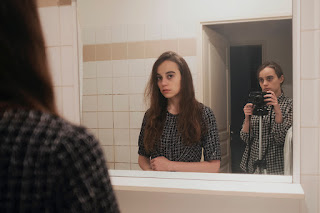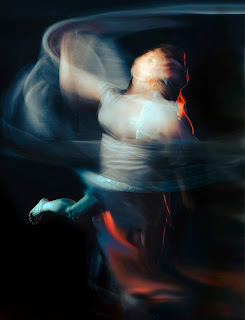Pauline Le Pichon
When I started photography in the late 2000s, I quickly began to take a lot of self-portraits. At that time, I didn’t dare to take pictures of people, so it was easier for me to take self-portraits.
By exploring the question of appearances year after year, I created several series of self-portraits. And as with the selfies, I realized over time that the camera pointed at me had the power to transform me.
As soon as I set the self-timer and stepped in front of the lens, I created a new identity. Like an actress, I automatically put myself in the shoes of a character and gradually moved away from the faithful representation of reality.
Strangely, I rarely took my self-portraits in the presence of others, as if this change was too intimate, too personal.
With few ingredients, «Asymétrie» shows me as a photographer and as a model, talking about the moment when I leave the real to reach something more fake.
With this work, I show how I was deceived by the photographic medium, and how I can deceive the viewers. If you look at my images without reading my artist statement, you may think that these images are backstages of photoshoots with my twin sister. But this isn’t real. These photographs are staged and faked. I don’t have a twin sister. So, in a society overrun with images and fake news, I encourage the viewer to step back and check the information given before believing it.




Photography is a wonderful medium that allows us to create fanciful, sometimes non-existent, atmospheric worlds
ReplyDelete'But this isn’t real.' I enjoyed being challenged by your photograph. Photography engenders critical thinking and for me, leads to a greater ability to understand multiple perspectives: others’ and my own; considering cultural contexts, resisting stereotypes, and valuing our shared human dignity, especially as I interact with others whose paths can differ greatly from my own. You gave me an 'Aha!' moment, and for that I thank you.
ReplyDeleteI find it interesting that the default assumption most people have is that others are truthful in their communications and dealings, and I am disturbed when I find that someone has lied to me. Why I wonder, is it so different when deception is used in place of a lie, within art?
absolutely on point
ReplyDeleteone of the reasons I stick with photography is to enjoy the aporia -- contradictions -- between what is and what is not, but I also could not resist going in a pixel level to work out how you made the image
ReplyDelete